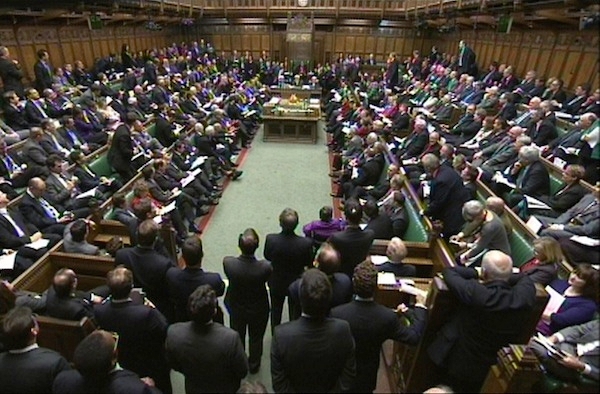Without wanting to dispel the utter euphoria that Tories are feeling at the current state of the Labour party, they do have a tricky autumn to get through which they don’t seem to be thinking much about. In today’s Times I set out some of the looming Tory rebellions on a range of different policies due for Commons scrutiny this autumn.
There is, of course, the possibility that the whips pull many of these votes, which means that there will be problems in Parliament, but not actual rebellions in the Commons. The Tories may be trying to pass various policies that aren’t particularly popular, but they’re being nimble about it, dropping votes as soon as it becomes clear they are either going to be lost or too close to call. They do not want to give the impression to any rebels that you can get your way with the government, as this will encourage further trouble.
Nevertheless, some difficult votes may take place this autumn. Here are the ones to watch:
1. Cities and Devolution Bill
There are a number of problems with this legislation, which hasn’t yet registered as a ‘row’. Some Tories are simply worried about the principle of devolving more powers to cities and regions. Others are annoyed about imposing elected mayors on regions when most cities voted against them in 2012, arguing that this rather contradicts the principle of handing power to the people. Others think the mayors themselves will not enhance local accountability, as the elected mayoralty of George Osborne’s beloved Manchester, for instance, is hardly likely to switch from being Labour to Tory, even if that Labourite is performing very poorly in the job.
MPs are also nervous about the impact of cuts to local government funding in a way that they weren’t in 2010, fearing that what is unveiled in the autumn comprehensive spending review will cut services in a way that voters will really notice and won’t really support. Expect internal pressure from influential backbenchers, and – if ministers don’t yield – amendments to the legislation.
2. English votes for English laws
Whips have already delayed the vote on this until the autumn after the DUP told them they couldn’t support it. But though Chris Grayling and the whips are trying to whittle down the numbers of Tory MPs who are annoyed that this doesn’t go far enough, I’ve spoken to enough MPs who are still annoyed about this for the measure to fail again: the slender government majority means you don’t need to speak to that many, either. It’s interesting how many MPs are privately worried about this for various reasons, but who haven’t said anything in public at all. There will either be another threatened rebellion on this, in which case the whips will have to consider pulling it yet again, or Tory MPs may try to force their own measure through the Commons (which would be unlikely to pass unless the government caved or abstained, as it did on Dominic Raab’s amendment to the Immigration Bill).
3. Syria
Labour is nervous about this vote in the same way as it is always nervous about votes on military intervention and has been discussing it at length in the Shadow Cabinet. So are the Tories: as I say in the column, MPs have been canvassed by whips, ministers and PPSs already, which suggests that the government is quite keen to give it a go. But this will not so much as appear on the Order Paper if there is any wavering from Labour on the matter.
4. EU referendum purdah
The report stage of the EU referendum bill is on 7 September, and the government must offer some kind of solution to the problem which led to a sizeable rebellion on whether or not there needs to be a purdah period before the referendum to prevent the ‘In’ camp gaining a sizeable advantage.
5. Communications Data
Now that the Lib Dems are out of the way, the Tories are having another go at extending the access for the security services to different methods of communication. Labour may or may not support this. One Tory figure to look out for is Dominic Raab, a furious opponent of the previous proposals on Comms Data but now a minister in the Ministry of Justice (and one of the architects of the proposed human rights reforms below). Will he vote for the legislation this time, or resign and rebel? This may depend on whether the human rights reforms look as though they are ever going to make it into the Chamber. If they’re dead in the water for this Parliament, then Raab might feel there is less reason for him to stay on the government payroll.
6. Human rights reform
Even though those in favour of scrapping the Human Rights Act and replacing it with a British Bill of Rights believe they still have a good chance of succeeding with this, opponents of this plan argue that there are just too many of them for the whips to ever try to get this through the Commons, even with the support of the DUP. There are the vocal opponents such as David Davis, Andrew Mitchell, Dominic Grieve and Damian Green, but there are also many others who are worried about the measures proposed who plan to keep telling their whips so in order to keep the government from trying anything. It may well be that David Cameron tries to weave this into his offer to the British public of a renegotiated EU membership, even though it isn’t part of the renegotiation anyway, in order to sound as though he has achieved something eurosceptic-ish.







Comments